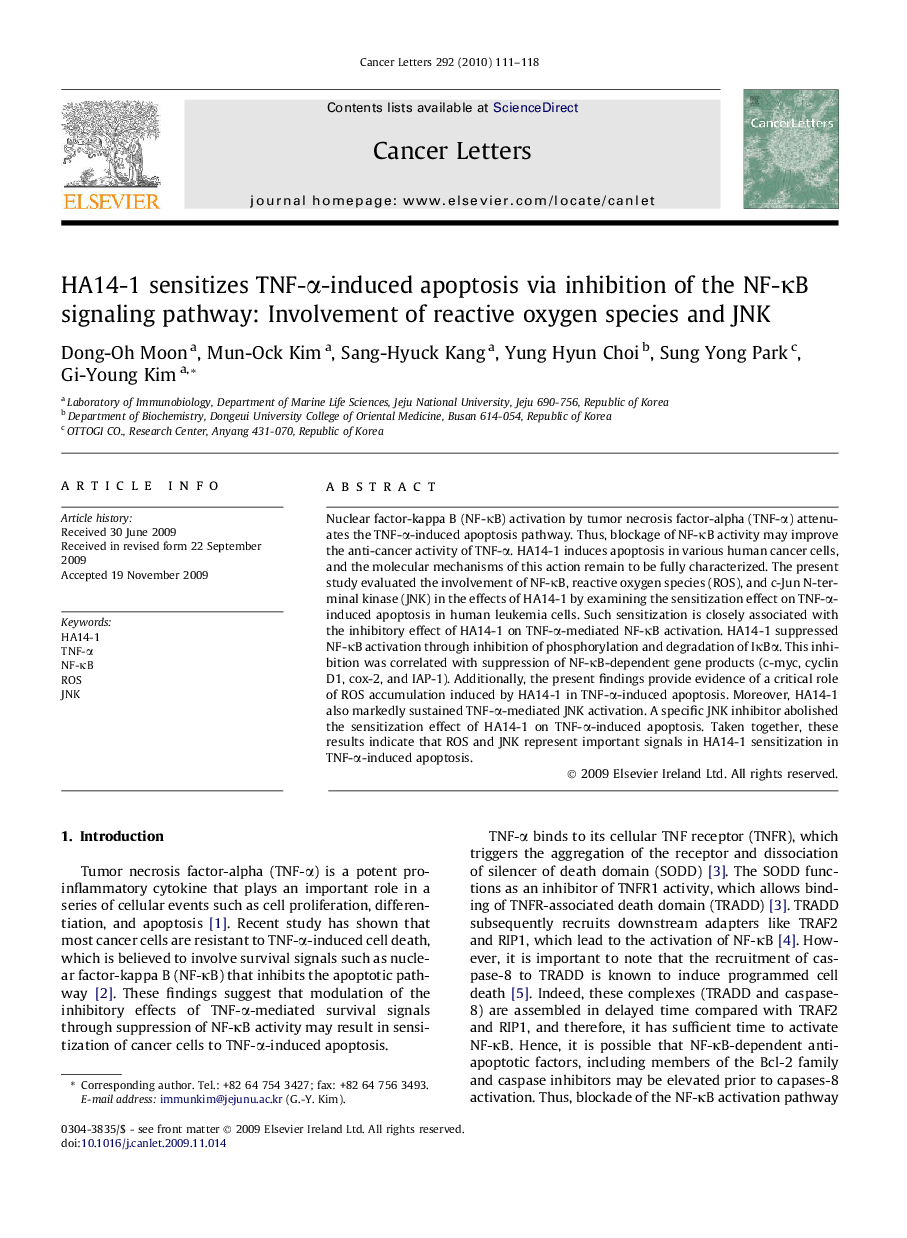| کد مقاله | کد نشریه | سال انتشار | مقاله انگلیسی | نسخه تمام متن |
|---|---|---|---|---|
| 2114076 | 1084515 | 2010 | 8 صفحه PDF | دانلود رایگان |

Nuclear factor-kappa B (NF-κB) activation by tumor necrosis factor-alpha (TNF-α) attenuates the TNF-α-induced apoptosis pathway. Thus, blockage of NF-κB activity may improve the anti-cancer activity of TNF-α. HA14-1 induces apoptosis in various human cancer cells, and the molecular mechanisms of this action remain to be fully characterized. The present study evaluated the involvement of NF-κB, reactive oxygen species (ROS), and c-Jun N-terminal kinase (JNK) in the effects of HA14-1 by examining the sensitization effect on TNF-α-induced apoptosis in human leukemia cells. Such sensitization is closely associated with the inhibitory effect of HA14-1 on TNF-α-mediated NF-κB activation. HA14-1 suppressed NF-κB activation through inhibition of phosphorylation and degradation of IκBα. This inhibition was correlated with suppression of NF-κB-dependent gene products (c-myc, cyclin D1, cox-2, and IAP-1). Additionally, the present findings provide evidence of a critical role of ROS accumulation induced by HA14-1 in TNF-α-induced apoptosis. Moreover, HA14-1 also markedly sustained TNF-α-mediated JNK activation. A specific JNK inhibitor abolished the sensitization effect of HA14-1 on TNF-α-induced apoptosis. Taken together, these results indicate that ROS and JNK represent important signals in HA14-1 sensitization in TNF-α-induced apoptosis.
Journal: Cancer Letters - Volume 292, Issue 1, 1 June 2010, Pages 111–118